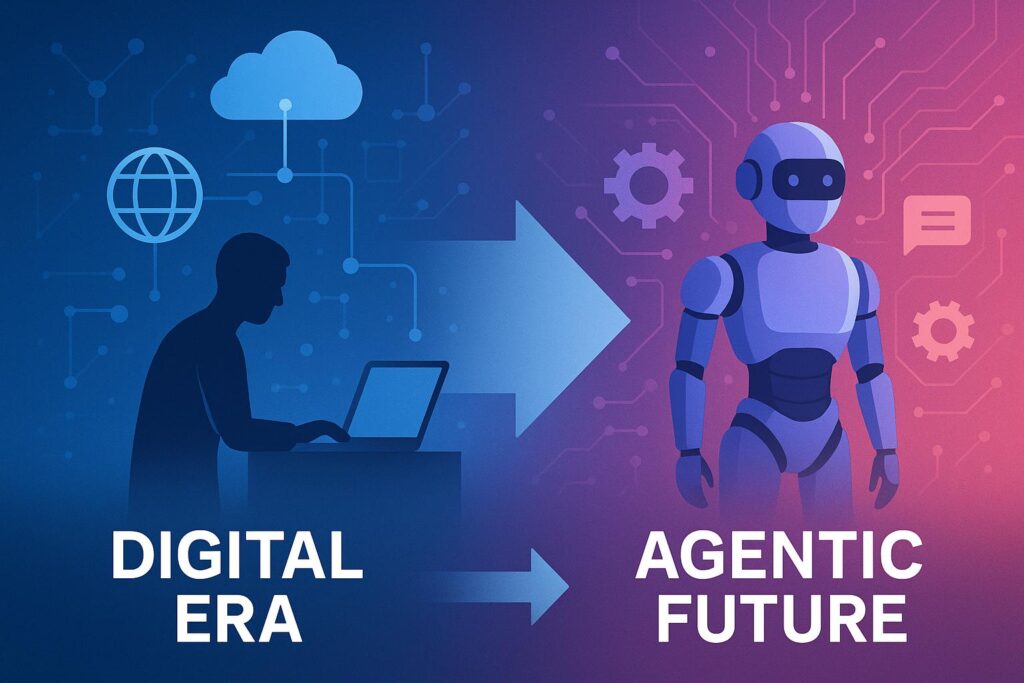Introduction: A New Chapter in Technology
The digital era has transformed the way we live, work, and interact. With advancements like cloud computing, mobile apps, and global connectivity, digital tools have brought speed, efficiency, and access to information like never before. Yet, even the most powerful digital systems still rely on human input and direction to deliver results.
Now, a new shift is on the horizon—the rise of the agentic future. This next stage in technology moves beyond tools that simply follow commands, introducing intelligent, autonomous systems that act proactively and independently.
The Digital Age: Groundbreaking, But Dependent
Over the last few decades, digital technologies revolutionized communication, business, and everyday life. Platforms enabled global commerce, social networks reshaped how we connect, and data analytics opened up new insights. But digital systems remained reactive—they needed people to tell them what to do.
Despite all the innovation, traditional digital tools are limited by their reliance on constant human oversight. In a world that demands real-time action, personalization, and scale, this model can only go so far.
The Agentic Shift: Intelligent, Autonomous Systems
The agentic era marks a significant transformation. Driven by AI, agentic systems can understand context, learn from interactions, and make decisions with minimal input. These systems are not just automated—they are proactive, adaptive, and intelligent.
Whether managing a daily schedule, running a supply chain, or delivering customer support, agentic AI brings a new level of efficiency. These technologies act as digital partners, not just digital tools—anticipating needs, solving problems, and continuously improving over time.
Real-World Impact of Agentic Technology
The impact of agentic systems can be seen across industries and everyday life:
- Individuals can benefit from digital agents that manage health, finances, schedules, and learning—all tailored to personal preferences.
- Businesses can use agentic AI to automate workflows, forecast trends, personalize customer experiences, and improve operational efficiency.
- Society stands to gain from smart cities powered by intelligent agents that optimize traffic flow, energy usage, and emergency response.
This shift is not just about doing things faster—it’s about doing them smarter, with systems that think ahead and take meaningful action.
Conclusion: The Future Is Agentic
The digital era gave us access, speed, and global connectivity—but now, we’re moving beyond it. The next chapter in technology is defined by intelligence, autonomy, and systems that work proactively.
The agentic future represents a fundamental shift—from reactive tools to smart, self-directed systems that understand, adapt, and act. This evolution is already transforming how individuals, businesses, and societies operate.
The future is no longer just digital.
The future is agentic.

